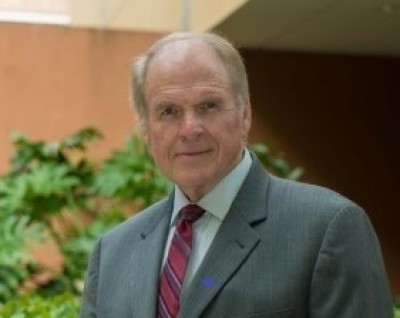Romans 13 and revolution
Author's note: The contemporary situation is perhaps the first time since the Civil War that talk of literal revolution is getting serious. It has been intensifying for the last four years. In 2018 I reflected on Romans 13. I Include some of those thoughts in the current column.
America in this desperate hour does not need bloody, anarchic chaos from left or right, but a constitutional, biblically grounded revolution.
Chaos kills the patient it claims to heal.

America’s founders, steeped in biblical knowledge and principles, and fresh from the chaos of the Revolutionary War, sought revolution that would be carried out with order rather than chaotic rampage like we have seen in 2020. (read John Eidsmoe’s Christianity and the Constitution and/or Democracy in America, by Alexis DE Tocqueville, and/or Wilfred M. McClay’s Land of Hope, and/or Revival, Revolution, Rebirth, co-authored by former House Majority Leader Tom Delay and myself).
When it comes to revolution there are two extremes among Christians. One embraces the view that revolution by any means is acceptable. The other extreme insists that Romans 13 forbids any resistance, even of a tyrannical government.
Paul, under the inspiration of the Holy Spirit, opens with these words: “Every person is to be in subjection to the governing authorities, for there is no authority except from God, and those which exist are established by God.”
Does this mean the authors of the Declaration of Independence and the Constitution were going against the Word of God? Does this mean that people have no biblically sanctioned means of bringing down despotic regimes?
The key to understanding and applying Romans 13 lies in an important Greek word that appears there, exousia. This term is usually translated as “authority”, in contrast to dunamis (“power”) or kratos (“might,” or “strength”)
Power and might can only function properly when under proper authority. Therefore, the American Founders, in an age touched by the Great Awakening, and the thundering voices of prophetic preachers, placed healthy restraints in the founding documents. God’s transcendent authority is above all, as made clear in the Preamble to the Declaration of Independence:
We hold these truths to be self-evident, that all men are created equal, that they are endowed by their Creator with certain unalienable Rights, that among these are Life, Liberty and the pursuit of Happiness. That to secure these rights, Governments are instituted among Men, deriving their just powers from the consent of the governed, That whenever any form of Government becomes destructive of these ends, it is the Right of the People to alter or abolish it, and to institute new Government, laying its foundations on such principles and organizing its powers in such form, as to them shall seem most likely to effect their Safety and Happiness. (Italics added)
Therefore, “powers” can only be exercised under proper authority, flowing from God to the people, and through them to the government they choose, all “under God.” The People are the agents of God’s authority. That means they have a responsibility to know the heart and mind of God through relationship with Him. “Our Constitution was made only for a moral and religious people,” said John Adams. “It is wholly inadequate to the government of any other.”
This is a major shift from the elitist monarchical-oligarchical-plutocratic governing styles that had dominated six thousand years of recorded history. (See, for example, William Federer’s book, Change to Chains)
It’s important, then, to understand crucial differences between power and authority:
- Authority is granted from the higher to the lower; power is seized by the strongest
- Authority is accountable to its transcendent source; power is accountable only to itself
- Authority is sustained through loving relationship and service; power is sustained by raw strength
- Authority leads through example and the free choice of those who are led; power controls, as Dudley Hall puts it, through manipulation, intimidation, condemnation, domination.
Where mighty people try to use power without authority there is opportunity for the demonic to surge in. All the powers of darkness await is someone to open the door so the destroyers can find a “stronghold” from which they can accomplish their evil purposes.
Both King Saul and King Nebuchadnezzar learned this principle the hard way. Saul acted against the direction of God in the aftermath of a great battle and victory and seized authority that God had not granted him. The Lord spoke the result through the prophet Samuel: “... rebellion is as the sin of divination, and insubordination as iniquity and idolatry... Because you have rejected the word of the Lord, He has also rejected you from being king of Israel.” (1 Samuel 15:22-23)
The big lesson: Use power and might entrusted to you without yourself being under proper authority, and you will lose the right to lead and rule. This has concerning implications for Catholics in government who expand abortion despite the official beliefs of their Church.
Babylonian King Nebuchadnezzar rejected the God of Daniel and lost his mind, spending years in the wilderness in an animal-like existence. But in his insanity, Nebuchadnezzar found God, and, at the end, declared Daniel’s God as the true God, “the ruler over the realm of mankind,” who “sets over it the lowliest” of people (because it is the “lowliest” who are humble enough to recognize their need to be under authority, and thus can be trusted with authority). (Daniel 3-4)
It would seem now that the whole of contemporary government has dashed off into Nebuchadnezzar’s wilderness of chaos. Pray that its minions find God in that mad realm and bring themselves under His authority.
Wallace B. Henley’s fifty-year career has spanned newspaper journalism, government in both White House and Congress, the church, and academia. He is author or co-author of more than 20 books. He is a teaching pastor at Grace Church, the Woodlands, Texas.



























